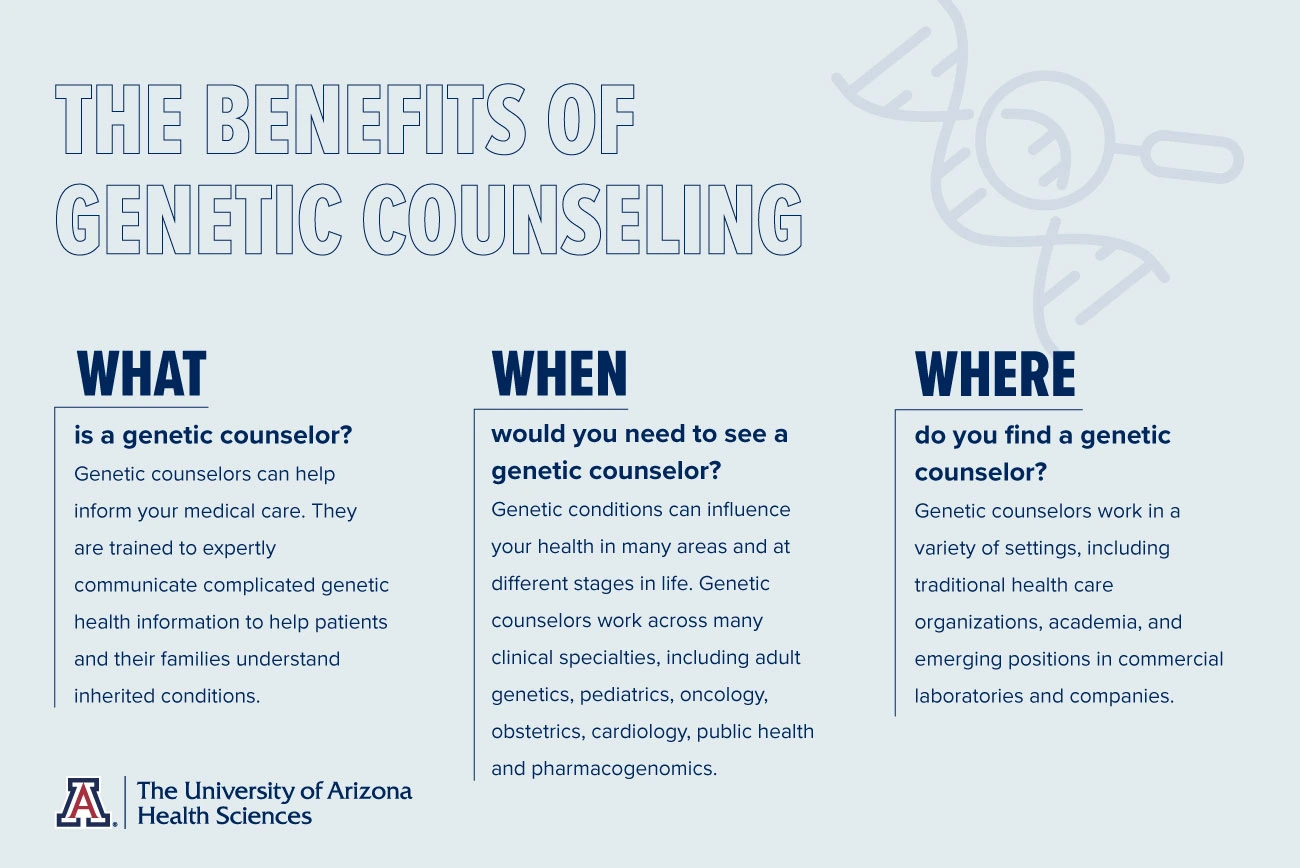Expanding Precision Medicine Through Genetic Counseling
A master’s program seeks to improve patient care by training genetic counselors to help people interpret and utilize genetic testing results.
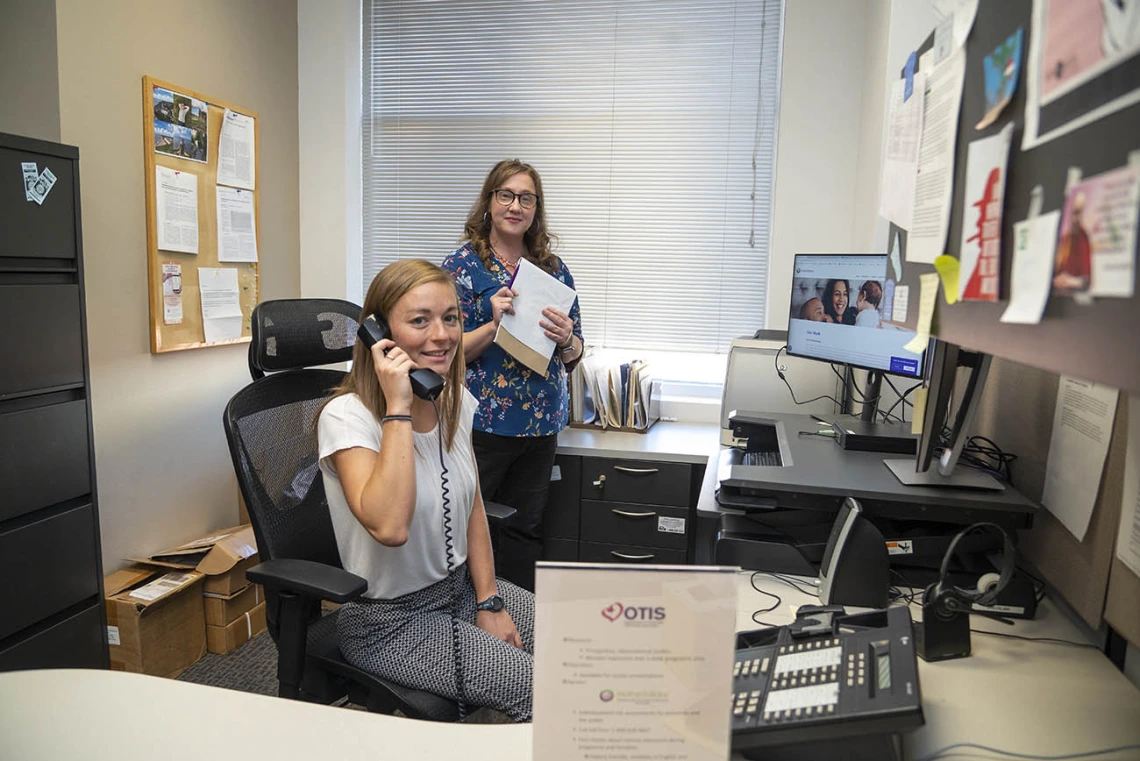
Genetic counseling graduate students complete clinical rotations at various locations including MotherToBaby Arizona, a hotline that provides information about the safety of medications and other exposures during pregnancy and breastfeeding.
In the mid-1990s, researchers found two genes – breast cancer gene 1 and breast cancer gene 2, or BRCA1 and BRCA2 – that are altered in many families with hereditary breast cancer. According to the National Cancer Institute, an inherited mutation in one of those two genes can increase the lifetime risk of breast cancer to around 70%. The discovery led to opportunities to provide lifesaving preventive care by identifying at-risk individuals, who are often referred to a genetic counselor.
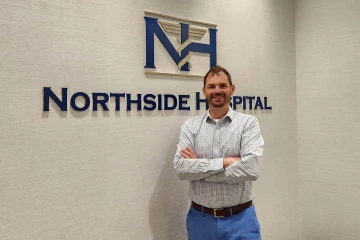
Tim Hakim joined Northside Hospital Cancer Institute in Atlanta after graduating from the University of Arizona Health Sciences’ Genetic Counseling Graduate Program. The Northside Hospital Cancer Institute is one of the nation’s largest cancer programs.
Genetic counselors use their expertise to help patients and their families interpret genetic testing results and understand the diagnosis. They can also help guide decisions about medical care, including screenings, surgeries, medications and more.
“When we have someone with breast cancer, their surgeon may be recommending a lumpectomy. But if we tell the surgeon the patient has a BRCA1 or BRCA2 mutation, then their recommendation could be to do a double mastectomy,” said certified genetic counselor Tim Hakim, who earned a master’s degree in genetic counseling at the University of Arizona Health Sciences. “So that's an immediate and potentially life-saving impact.”
The Genetic Counseling Graduate Program, located in the College of Medicine – Tucson’s Department of Cellular and Molecular Medicine and administered by UArizona Health Sciences, was the first of its kind in Arizona when the initial students were accepted in 2019. Hakim was a member of that first class and is now a genetic counselor in oncology at the Northside Hospital Cancer Institute in Georgia.
Educating the next generation of genetic counselors

Hakim (right) was part of the first class of students to complete the 22-month Genetic Counseling Graduate Program and earn a Master of Science degree, preparing him for a career in the rapidly expanding field.
BRCA mutations are just one example of the many different genetic disorders that can cause health concerns. Genetic counselors can be found across different clinical specialties, including adult genetics, pediatrics, oncology, obstetrics, cardiology, public health and pharmacogenomics.
“I really like cancer genetic counseling, because I think there are a lot of clear-cut opportunities to improve medical management for patients and their families,” Hakim said.
Genetic counselors work in a variety of settings from traditional health care organizations to commercial laboratories and companies. According to the U.S. Bureau of Labor Statistics, the field is expected to grow 18% from 2021 to 2031.
The cornerstone of the profession is the communication of complicated genetic health information to patients and their families.
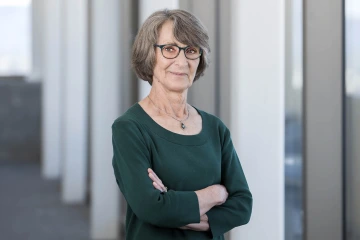
Dee Quinn, who received a master’s degree in genetic counseling from Sarah Lawrence College in 1981, was appointed director of the University of Arizona Health Sciences’ Genetic Counseling Graduate Program in 2016.
“It starts with taking a family history. That is the hallmark of what we do regardless of the subspecialty,” said Dee Quinn, a certified genetic counselor and director of the Genetic Counseling Graduate Program. “It is not only a tool we use to look for red flags, but also a way to develop a sense of trust and communication between us and the client, and that is extremely important given the depth and type of information we may need to discuss with them.”
Quinn helps guide students through the rigorous two-year, 63-credit master’s program that involves academic work, clinical rotations and a research project. For example, students take an in-depth course on congenital abnormalities and complete a rotation at MotherToBaby Arizona, a phone, text and email hotline that provides information about the safety of medications and other exposures during pregnancy and breastfeeding.
“The MotherToBaby rotation is really unique,” said second-year student Emily Gay. “Also, an in-depth embryology class and pathophysiology classes reflected a diverse curriculum. It is kind of crazy to think about how far I have come and how in another year I will hopefully be a full-time practicing genetic counselor.”
A field constantly moving forward
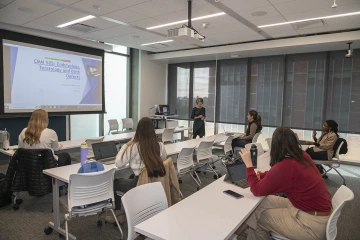
Academic courses, including some taught by Quinn, lay the foundation for the clinical rotations and research projects students will complete as part of the degree program.
Quinn said genetic counseling is a field that requires lifelong learning of new techniques, new technologies and new ways to help families who have known genetic diseases. Advancements in precision medicine over the last 10 to 20 years have been especially exciting for genetic counselors.
“In cancer, they can do genetic testing on the tumor and determine which genes are not acting correctly. For instance, it is possible someone could have lung cancer, but the tumor may have a change in a gene more commonly associated with colon cancer. You would want to treat them with different medications,” Quinn said. “We are really using precision medicine to determine what the best treatment is.”
As she completes her studies, Gay is leaning toward pursuing a career in pediatric genetic counseling because of the opportunity to help diagnose and treat a variety of conditions.
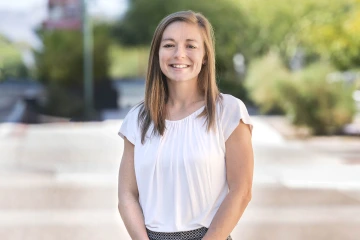
Emily Gay is a second-year student in the Genetic Counseling Graduate Program. She is considering a career in pediatric genetic counseling, because of the opportunity to help guide care for a variety of conditions.
“There could be things that have been going on throughout the child’s life, undiagnosed, or noticeable congenital abnormalities present at birth,” she said. “Maybe an infant was born with something wrong with their heart and doctors fix it, but then later in life we see some other things popping up. So, we can step in and say does this fit a genetic condition? It is kind of like putting the puzzle pieces together.”
Hakim believes an ever-increasing understanding of genetics yields almost as many questions as it does answers, making the field of genetic counseling ripe for new discoveries and new ways of helping patients.
“Sometimes, you can provide information that can alleviate a lot of unnecessary anxiety someone might have about their family history” Hakim said. “And to me, it is really exciting that you can change someone’s medical management and possibly prevent cancer from occurring.”
